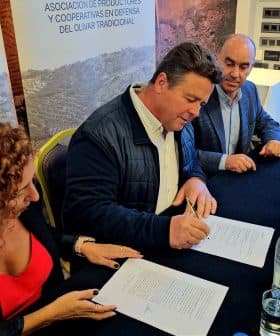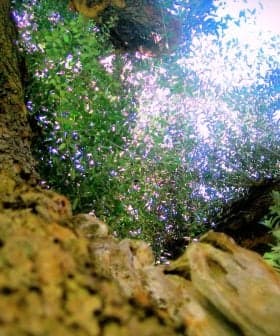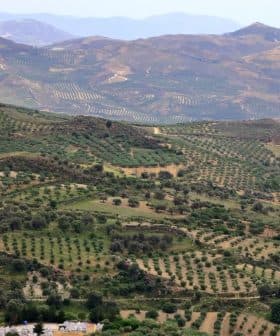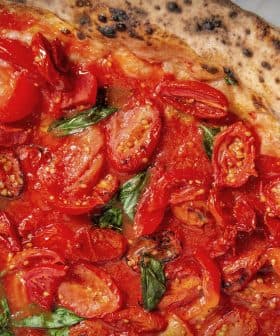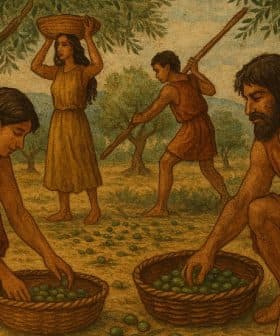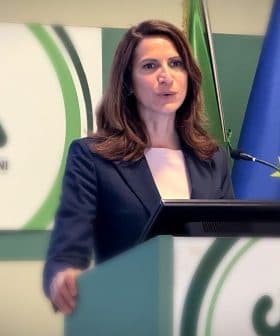For Children Visiting Crete, a Free Book on Olive Oil Culture
The Association of Cretan Olive Municipalities and the International Olive Council are offering free copies of two educational books about olive oil to the children of tourists who visit Crete, Greece.
 Rethymnon, Crete, Greece
Rethymnon, Crete, GreeceThe book “On the Olive Routes” highlights the historical significance of olive trees in the Mediterranean region and their importance in Greek culture. The Association of Cretan Olive Municipalities (ACOM) is distributing free copies of this book and another to children visiting Crete, aiming to educate them about the health benefits and cultural value of olive oil. ACOM’s broader educational project also includes events for children and parents, as well as distributing educational materials to hotels in Crete to promote awareness and appreciation of olive oil.
“In the areas surrounding the Mediterranean Sea, people have not been living alone. For thousands of years, they have been living together with a different kind of population, a population that constantly grows and expands over the plains, the slopes and the mountains of the hinterland of the Mediterranean countries. This is the population of the olive trees,” as we learn from the back cover of a new book, On the Olive Routes by Nikos Michelakis, Angela Malmou, Anaya Sarpaki, and George Fragiadakis.
In cooperation with the International Olive Council (IOC), the Association of Cretan Olive Municipalities (ACOM) is offering free copies of this and another book to the children of tourists who visit the island of Crete in Greece.
As part of the second phase of their joint campaign to increase young people’s awareness of the healthy, flavorful, and cultural value of olive oil, ACOM and the IOC have published 10,000 copies of the two books, one for ages 5 to 8 and another for older children and their parents, in Greek and English editions. Much of the Greek edition is being distributed to Cretan schools, and both editions are available for online reading, along with some children’s games.
Working with hotels in Crete through the hotel owners’ associations in each of its four prefectures, ACOM is continuing a broader educational project that began as a collaborative effort to reach out to hundreds of the island’s schoolchildren and parents with the help of municipalities and schools. During the school year, ACOM sponsored eight well-attended events that featured children’s theatrical performances pertaining to olives and olive oil, as well as brief experts’ presentations for parents.
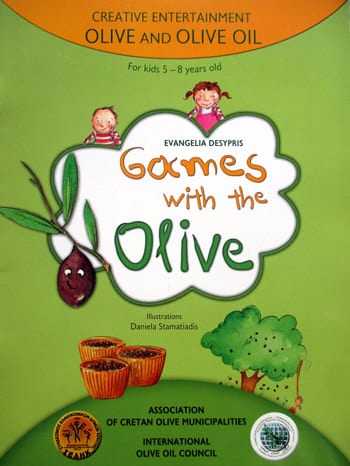
Now, ACOM has invited hotels to request the two free children’s books for display and distribution in their lobbies. Aimed at young children, Games with the Olive includes coloring pages and simple mazes and games related to olive oil production and olive oil in the context of mythology, history, religion, and health.
The beautifully illustrated book On the Olive Routes Past, Present, and Future provides more detail for older children and their parents on the importance of olive trees and olive oil in Greek life and culture in both ancient times and the present. It discusses harvesting, olive oil production, olive tree botany and cultivation, olive oil quality classification, the traditional Cretan diet, the health benefits of olive oil and ways to cook with it, and olive oil consumption, imports and exports.
Dr. Nikos Michelakis, a scientific consultant to ACOM, told Olive Oil Times he estimates that over 5 million people will visit Crete this year. With ACOM’s educational books already in the reception areas of more than 50 hotels and additional books requested by others, he hopes their message about the importance of olive trees and the health value and taste of olive oil will reach many of those tourists. ACOM has requested that hotel staff ask tourists who accept the books to complete a brief questionnaire to gauge the level of their knowledge about olive oil and their interest in using it.

In addition to educating both Greeks and foreigners regarding olive oil, ACOM aims to improve the diets of people who visit or live in Crete and encourage gastronomic tourism involving consumption of local products, thus increasing employment opportunities for Cretans. With this project, ACOM offers something for everyone, including a quiet activity and a souvenir for vacationing children, and educational opportunities for children and parents who wish to learn more about the lands they visit and the foods they eat there.
Parents might not fully believe the claim that “the olive fruit is the greatest cure for any problem in life” (from the sixth century BC Athenian statesman Solon, as quoted in On the Olive Routes). But they may be quite interested to read that “the health benefits of olive oil, known since ancient Greek times mainly through the works of the medical pioneers Hippocrates, Galen, and Dioscorides, are constantly being confirmed and backed up by recent research and studies.” Looking over their children’s shoulders, they may be inclined to borrow this book to learn more.
- Δωρεαν προσφορά στα παιδιά Τουριστών βιβλίων για την Ελιά και το Λάδι (Free Books about the Olive and Olive Oil Offered to the Children of Tourists)
- Συνεχίζεται η εκστρατεία ευαισθητοποίησης της νεολαίας για την ελιά και το ελαιόλαδο (Ongoing youth awareness campaign about the olive and olive oil)
- Olivegames


